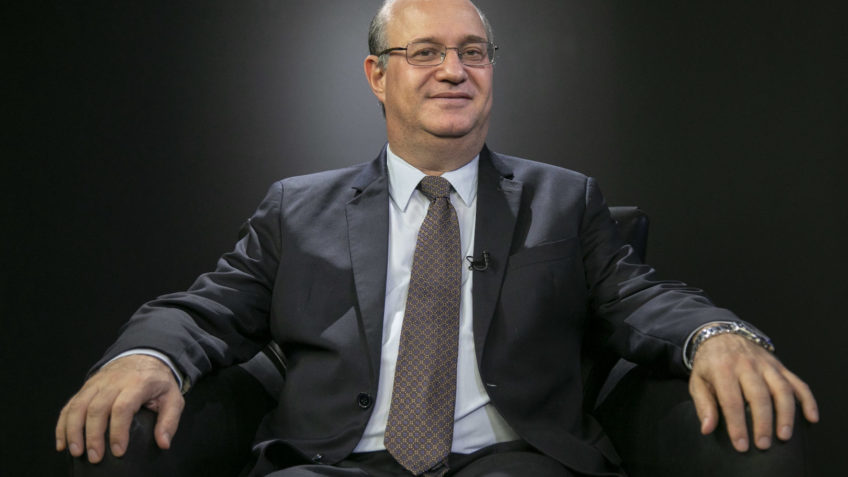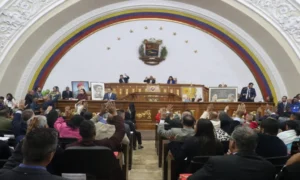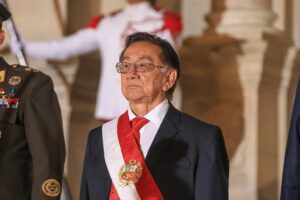
According to the president of the IDB, there is complementarity in what the region produces and what the world demands; but there are serious challenges
The president of the IDB (Inter-American Development Bank), Ilan Goldfajn, says that the current economic moment is one of the best in recent history for Brazil and Latin America. There is growing demand for what the region produces. And the consequence could be the end of the cycle of “lost decades” that the region faces.
There are some challenges to be overcome so that this opportunity can be taken advantage of. In an exclusive interview with Poder360, in Washington (USA), where the bank’s headquarters are located, Ilan listed the main ones:
- Impatience of the population with governments;
- Lack of fiscal space post-pandemic;
- Growing social demands.
“Lack [à região] Don’t miss the opportunity. Invest in infrastructure, have projects, have clear rules of the game, stability. Instead of being a lost decade, as so many were, it will be a decade found. You will find this decade the opportunity for the future”these.
Ilan participated last weekend in the Lide Brazil Development Forum meeting, held by the Lide Group in the North American capital. In addition to him, the president of the Central Bank, Roberto Campos Neto, and the president of the Senate, Rodrigo Pacheco (PSD-MG), also participated.
Ilan said that the war in Europe could bring opportunities for Brazil and Latin America. Ukraine is one of the largest producers of commodities of the world. “If the perception is that it will replace commodities, replace foods that are missing, that commodities will be on the rise, this will bring more resources over time“.
Ilan is an economist, 57 years old and has dual nationality. In addition to being Brazilian, he is Israeli. He was born in the city of Haifa. He moved to Rio de Janeiro at age 13. He received his doctorate in economics from MIT (Massachusetts Institute of Technology). He worked in private banks, such as Itaú and Credit Suisse, and in public institutions, such as the IMF (International Monetary Fund). He was president of the Central Bank of Brazil.
He has been in charge of the IDB since November 2022.
Tax and inflation
The former president of the Central Bank said that Brazil and the entire continent acted quickly to combat inflation in the post-pandemic period. But he warned that the monetary reaction has to come together with fiscal work.
“Combating inflation is more effective with fiscal policy in the same direction“, these.
Read excerpts from the interview:
Poder360 – The president of the Senate preaches that Brazil strike a balance between the environment and the exploitation of natural resources. How does this impact the possibilities for financing by the IDB and other multilateral banks?
Ilan Goldfjn – Each country has its sovereignty to decide how it will carry out its energy transition. Some countries, such as those in Central America, have 80% renewable energy. It will be faster. Others will take longer. There are Guyana and Suriname that are in the process of discovery. From the point of view of public resources, we want to support the clean matrix, which helps us get closer to the country’s goal. We will work with compatible projects.
Isn’t there a duality in the message for investors and multilateral organizations?
International organizations adapt to government decisions and use public resources where they believe they have to prioritize. It is not the case to join the local discussion. There is sovereignty. But to use the resources, it is what we think has priority, which is the energy transition. Let’s finance clean energy, green hydrogen.
Does the IDB see ethanol as clean energy?
I would have to delegate it to my technical area to know if this specifically is or isn’t. As president of the IDB, I cannot know every detail.
Fiscal concerns are more present in the global debate, especially post-pandemic. England has already faced problems. Today, the United States is beginning to be questioned. Are we entering a more fiscalist moment?
It’s natural after very high expenses like during the pandemic. And this has to be consolidated. It’s happening all over the world. A lot was spent, the debt rose, it has to stabilize. And they did it right. They had to react. Now, you can’t think that you are in the pandemic every year. It has shocks. Not to mention that combating inflation is more effective with a fiscal policy in the same direction.
There is criticism that Brazil took a long time to raise interest rates again after they were lowered. Was there a delay?
In Latin America, central bank presidents reacted early and are leaving before the rest of the world [da inflação]. The United States and Europe are still in the tightening process. Europe entered a little later. Latin America is ahead, then the United States, then Europe. We are seen as the region that fought inflation first and will come out first.
Can these countries receive more external resources due to this agility that you mention?
What can bring more resources is the perception that Latin America and the Caribbean have a complementarity with what the world needs today. When they think ‘where are we going to invest in green hydrogen’? It has to be in Latin America. The same with lithium, copper and food? If there is a perception that the region will benefit over the next 10 or 20 years, then the investment will come.
And what is needed for this perception to be consolidated?
You just need to not miss the opportunity. Invest in infrastructure, have projects, have clear rules of the game, stability. That’s what you need to maximize this activity. Instead of being a lost decade, as so many were, it will be a decade found. You will find this decade the opportunity for the future. This and the next ones.
And what are the main challenges?
There are growing social demands, populations impatient for change. There are political changes, from one government to another, street protests, social issues. Every week there is an issue in one of the countries. The first point is that society wants change. Poverty, inequality, environmental issues are bothering us. At the same time, and this is the 2nd aspect, we have resource constraints. There isn’t enough for everything. Fiscal space is smaller after the pandemic. We will resolve this by expanding resources, but Latin America and the Caribbean have not grown. These are the lost decades. There are growing demands, impatience and fiscal problems.
How do the war in Ukraine and the US disputes with China impact the flow of resources to Brazil and Latin America?
If the perception is that it will replace commodities, replace food that is missing, that commodities will be on the rise, this will bring more resources over time.
The Brics bank decided to enter into financing projects at a global level. How does this impact the IDB?
We need resources from everyone. Even if we add up all the banks, the amount of loans will be in the billions. But we need trillions. The idea is to join together. We have a group of multilateral banks that meet every 6 months to monitor and mobilize more resources. It is not only complementary work, but necessary.
The IDB is expanding work to reduce interest and loan costs in exchange for environmental projects. Are there any projects of this nature in Brazil that are of interest to the IDB?
You can think about our Amazônia para Semper program. It could, for example, issue Amazon bonds. Thematic bonuses linked to the drop in deforestation.
You took over the IDB after an investigation crisis with former president Maurício Claver-Carone. You preached reforms. How are they?
We are in the process of changing the institution. We have an institutional, people strategy. Our idea is to change and leave the IDB focused on impact and agility. People have to focus not on the amount of resources they lend, but what they generate. Let’s give an incentive for those who take out a loan to look at the result, and not just be happy with the money.
The journalist traveled at the invitation of Grupo Lide.
Source: https://www.poder360.com.br/economia/america-latina-pode-ter-decada-achada-diz-ilan-goldfajn/

